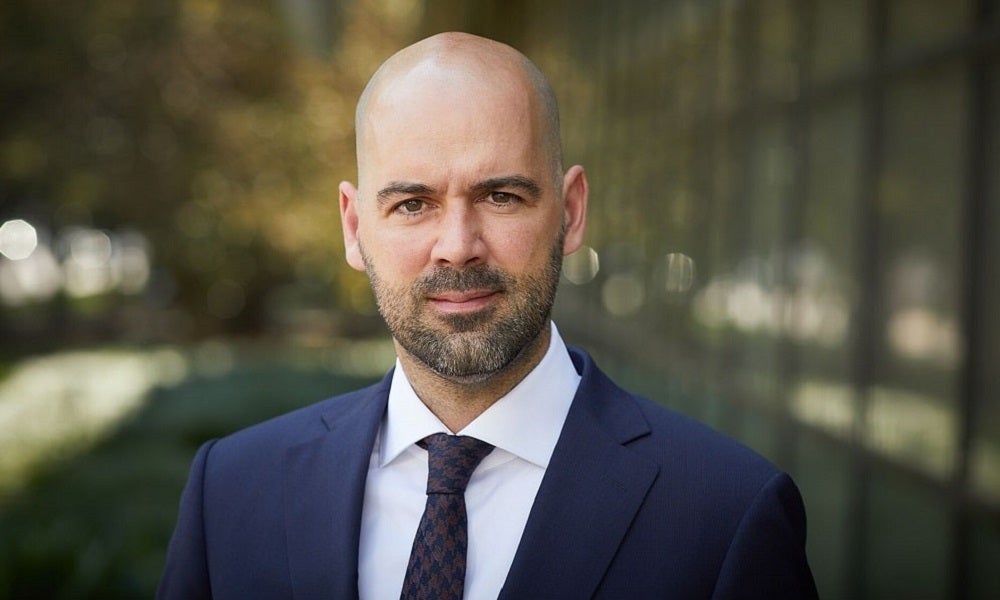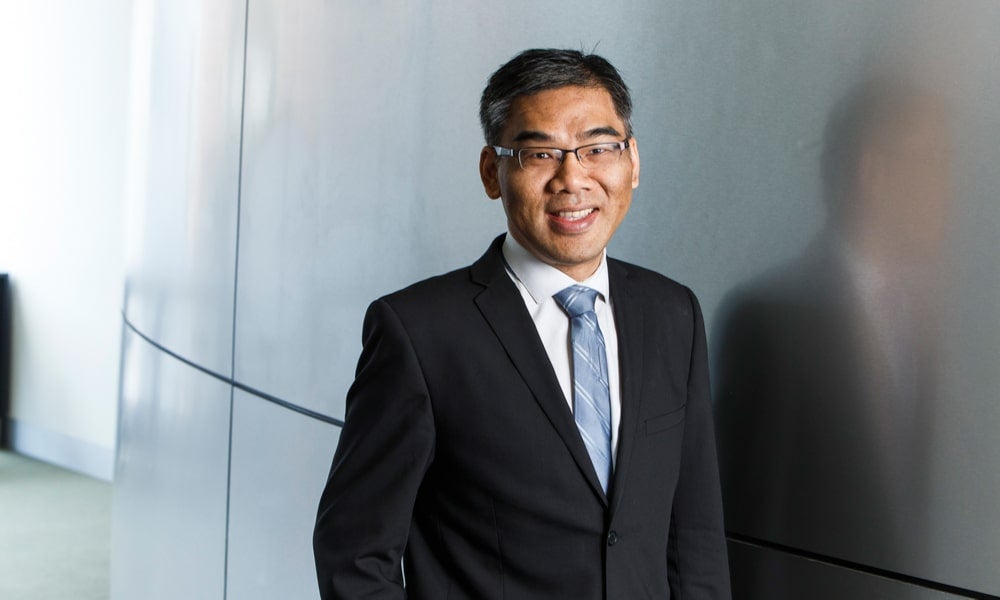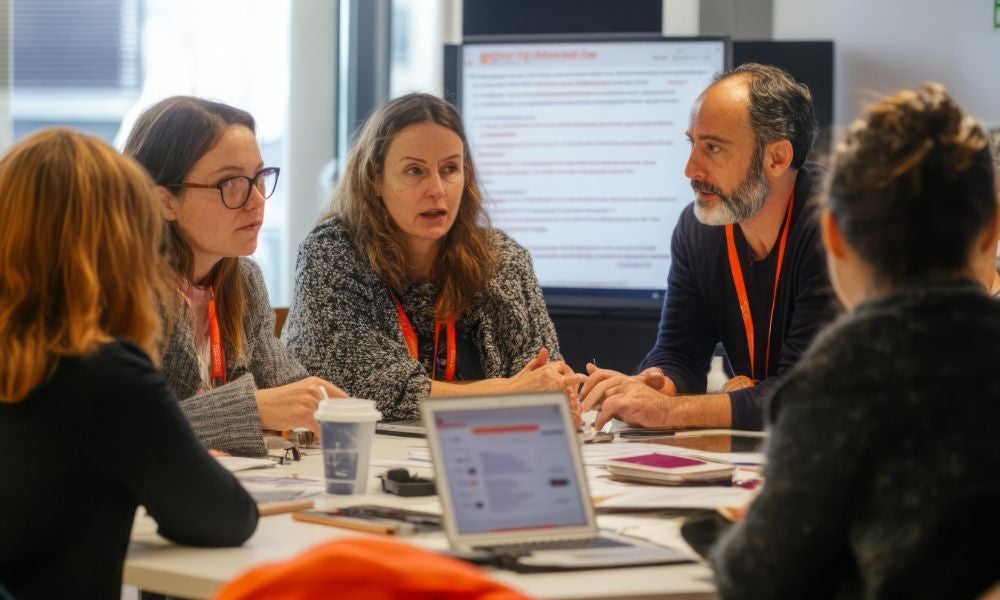Future ready research design: A framework for business impact
Future-oriented academic research drives policy planning, stakeholder engagement, and societal impact through practical design thinking principles
Wayne Gretzky, widely considered to be one of the greatest ice hockey players in the history of the sport, once remarked: "I skate to where the puck is going to be, not where it has been." This quote underscores the importance of anticipating and meeting future problems, according to Frederik Anseel, Professor of Management and Dean of UNSW Business School. "Researchers in a business school are not just about teaching MBA students or equipping people to be successful in individual careers," he said.
"We also have a lot to offer in the form of research insights to guide and inform policymakers. So, research in a business school should not just respond to the business problem of the day but help identify and address important societal problems, so-called ‘wicked problems’ that don’t have a straightforward predictable solution. We can help set the agenda of the grand challenges that should be solved in society," explained Prof. Anseel, who gave the example of population ageing and declining birth rates. This societal challenge is now top of mind among policymakers of almost all countries, but was already forecasted decades ago by demographers and health economists, as reflected by the long tenure of UNSW Business School’s Centre of Excellence in Population Ageing Research (CEPAR).
To help achieve this goal, academics need to engage with key stakeholders and essentially employ the principles of design thinking in planning their research. Design thinking is an approach to problem-solving and innovation that focuses on understanding the needs of a user or target audience, challenging assumptions, and redefining problems to identify practically relevant and realistic strategies and solutions. "As academics, what we need to learn to do is to design for impact," said Prof. Anseel.

"This means that before you start to research, you basically already involve the stakeholders, the end users, the people that you want to influence in the design of the studies. So you want to involve policymakers and decision-makers at the start, before you do the research, and think about the actual problems that we want to solve, and how the research can be done in a way that is most useful to those end users."
Scientia Professor Shan Pan, AGSM Scholar and Deputy Head of School (Research) at the School of Information Systems and Technology Management at UNSW Business School, echoed Prof. Anseel’s position and said that future readiness and research impact are increasingly critical factors in academic research.
The growing importance of future-oriented research
In recent years, there has been a noticeable shift in the priorities of academic research. Funding agencies and grant providers are increasingly favouring proposals that demonstrate potential for future relevance and societal benefits. This reflects a growing emphasis on practical outcomes rather than purely theoretical contributions.
"Future readiness and impact are increasingly prioritised in academic research,” Prof. Pan explained. “Funding agencies and grant providers are favouring proposals that show potential for future relevance and societal benefits, reflecting a shift towards practical outcomes. Universities and research institutions are also directing resources into projects that align with their strategic goals, ensuring long-term benefits."
Read more: Digital sustainability: technology solutions to climate change
This shift is not limited to funding bodies. Universities and research institutions are also aligning their resources with projects that demonstrate long-term strategic value. The focus is on research that can address emerging challenges and contribute to solving complex societal issues.
"As societal needs evolve, there is growing demand for research that addresses future challenges like climate change, technological advancements, and public health. Future-oriented research is more likely to be practically applied, influencing policy, industry practices, and community initiatives, thereby enhancing the relevance of academic work," Prof. Pan noted.
The impact on policy and strategic planning
Future-ready research plays a crucial role in informing policy and guiding strategic planning. It ensures that decisions made today are resilient and adaptable to future scenarios.
"Future-ready research plays a crucial role in informing policy and guiding strategic planning, ensuring decisions are resilient and adaptable. Aligning research with global sustainability goals, such as the UN Sustainable Development Goals, underscores the importance of future readiness. This approach promotes sustainable practices and innovations to address climate change and preserve natural resources," Prof. Pan explained.

By aligning research with global sustainability goals, such as the UN Sustainable Development Goals, researchers can contribute to broader initiatives aimed at addressing climate change and preserving natural resources.
For example, digital sustainability as a movement is gaining traction around the world. The research paper, Digital sustainability, climate change, and information systems solutions: Opportunities for future research, co-authored by Prof. Pan together with School of Information Systems and Technology Management colleagues Associate Professor Yenni Tim and Dr Sandeep Mysore Seshadrinath, provides an overview of approaches to addressing climate change through digital sustainability and proposes a number of future research themes focusing on climate resilience, climate-conscious citizen science, and organisations’ ESG strategies
Designing for the future in the age of pandemics
The recent COVID-19 pandemic has highlighted the critical importance of future-oriented research, particularly in the field of health and crisis management. Prof. Pan and his colleagues developed a framework called Future-Ready Design Research (FRDR) in response to these challenges.
The FRDR framework emphasises the need for adaptability in research design. It encourages researchers to anticipate potential future scenarios and design studies that can respond to sudden changes or unexpected developments. The framework, outlined in Designing for the future in the age of pandemics: a future-ready design research (FRDR) process, said the pandemic has painfully reminded us of the need for IS design to be informed by possible futures and conscious of undesirable futures.
Read more: What was the real impact of COVID-19 on our mental health?
"‘Designing for the future in the age of pandemics’ highlights the critical importance of orienting academic research towards the future,” said Prof. Pan. “This approach ensures relevance by addressing emerging health challenges and solving problems proactively. It drives innovation through the development of new technologies and methodologies for disease detection, prevention, and treatment, contributing to societal progress."
The framework also stresses the importance of stakeholder engagement throughout the research process. By involving policymakers, healthcare professionals, and community leaders from the outset, researchers can ensure that their work is aligned with real-world needs and challenges.
Practical applications and impact
The FRDR framework has already demonstrated its value in real-world scenarios. During the COVID-19 pandemic, a system designed using this approach was quickly adapted to model the spread of the novel coronavirus, despite its significantly different clinical and transmission features.
Professor Pan explained the practical impact: "Future-oriented research enhances practical impact by being useful, usable, and likely to be adopted by health organisations, governments, and communities, leading to improved public health outcomes,” he said. “Effective stakeholder engagement involves collaboration with public health officials, policymakers, industry leaders, and communities, resulting in stronger partnerships and sustained support."
This approach not only improved the accuracy of disease modelling but also enhanced the system’s ability to inform public health interventions effectively. The adaptability built into the system allowed for swift containment measures, demonstrating the real-world value of future-oriented research design.

Implementing future-ready research principles
To implement future-ready research principles effectively, Professor Pan emphasised the importance of a systematic approach. He highlighted the 3U framework developed in collaboration with his colleagues, which focuses on making research "Usable, in-Use, and Useful."
"The 3U framework identifies three forms of impactful research outputs. Their impact is cumulative, and the framework allows practice impact to be demonstrated earlier, rather than only at the end of a pathway to impact," Prof. Pan explained. This approach helps researchers to demonstrate the value of their work at various stages, from initial usability to practical application and ultimate usefulness.
His co-authored research paper, Usable, in-use, and useful research: A 3U framework for demonstrating practice impact, details the framework that encourages researchers to consider the practical implications of their work from the outset. “It prompts them to design research outputs that are not only theoretically sound but also readily applicable in real-world settings,” Prof. Pan said.
Subscribe to BusinessThink for the latest research, analysis and insights from UNSW Business School
Key takeaways for researchers
For business professionals, the principles of future-ready research offer valuable insights that can be applied to strategic planning and innovation processes:
- Anticipate future challenges: Regularly scan the horizon for emerging trends and potential disruptions in your industry. This proactive approach can help your organisation stay ahead of the curve and adapt more quickly to changes.
- Engage diverse stakeholders: Involve a wide range of perspectives in your decision-making processes. This can lead to more comprehensive solutions and help identify blind spots in your strategies.
- Build adaptability into your systems: Design your organisational processes and technologies with flexibility in mind. This can enhance your ability to respond to unexpected challenges and capitalise on new opportunities.
- Focus on long-term impact: When evaluating projects or initiatives, consider their potential long-term effects and alignment with broader societal goals. This can enhance your organisation's sustainability and relevance in the future.
- Embrace interdisciplinary approaches: Encourage collaboration across different departments and expertise areas. This can foster innovation and lead to more robust solutions to complex problems.
- Implement the 3U framework: Consider how your projects and initiatives can be made usable, put into use, and ultimately prove useful. This structured approach can help demonstrate value at various stages of development.
By incorporating these principles, business professionals can enhance their organisation's resilience and ability to thrive in an increasingly uncertain and rapidly changing business environment. The future-ready approach to research and innovation offers a pathway to developing solutions that are not only relevant today but also adaptable to the challenges of tomorrow.
